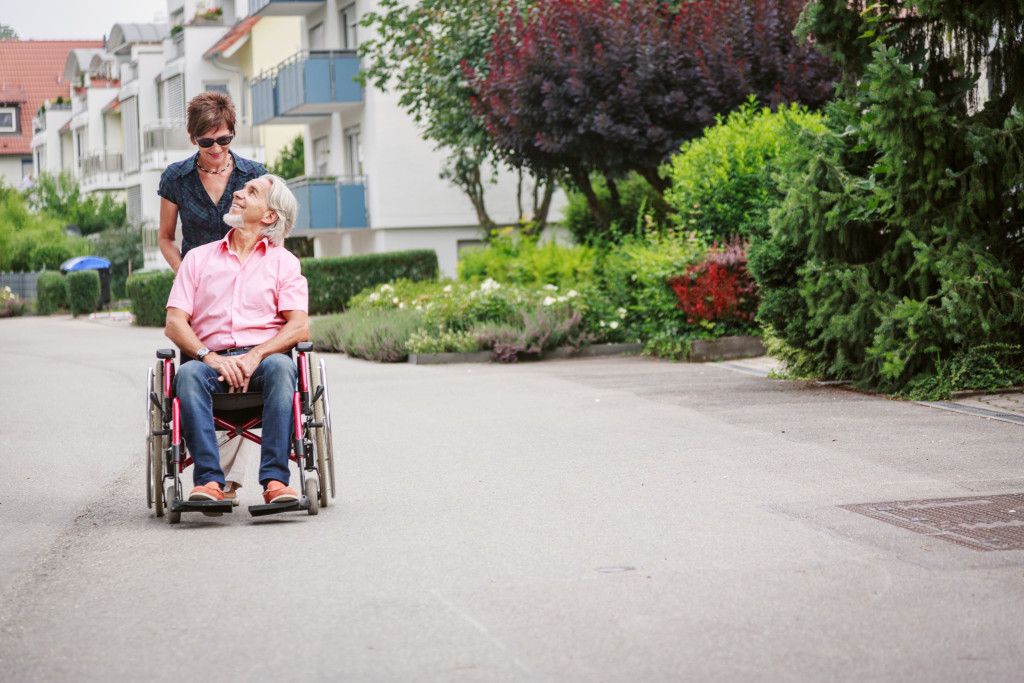Schizophrenia is a mental disorder that can affect anyone, but seniors are particularly vulnerable. It’s estimated that those aged 55 years above will make up 25% of people with schizophrenia worldwide. This guide is intended to provide readers with an understanding of what schizophrenia is, how it affects seniors and some coping strategies for those living with the condition.
What Is Schizophrenia?
Schizophrenia is a severe mental disorder characterized by hallucinations, delusions, and disorganized speech and behavior. Individuals diagnosed with schizophrenia may also have difficulty forming and maintaining relationships, functioning in society, and exhibiting emotional responses.
Risk Factors
There are some risk factors for schizophrenia aside from age. Here are some of them:
Genetics
It is estimated that genes can contribute up to 80% of the risk of developing schizophrenia. People who have a family history of the disorder are more likely to develop schizophrenia than those who do not have any family members with the condition. If one parent has schizophrenia, their child has a 10% chance of also having it; if both parents have it, their child’s odds increase to 40%. It is important to note that genetics does not guarantee that an individual will develop the disorder; it merely increases their chances.
Environmental Factors
Research suggests that environmental factors can also play a role in developing schizophrenia. These include traumatic events such as physical or sexual abuse or living in an environment with a lot of stress or violence. Exposure to viruses during pregnancy may also increase a person’s risk of developing the disorder later in life. Drug use (especially during adolescence) has also been linked to an increased risk of developing schizophrenia in adulthood.
Brain Chemistry and Structure
Studies have shown that individuals with schizophrenia have differences in certain brain chemicals like dopamine and glutamate, which play a role in mood regulation and behavior control, respectively. In addition, people with this condition often show structural changes in their brains compared to people without it – including smaller brain volume and different levels of activity in certain parts of the brain.
How Does It Affect Seniors?
Seniors are at an increased risk of developing schizophrenia, especially if they have a family history of the disorder or have suffered traumatic events during their lifetime. Symptoms of schizophrenia can be challenging to identify in seniors due to age-related factors such as cognitive decline or physical illness. Additionally, since many older adults live alone or in nursing homes, symptoms may go unnoticed for extended periods. Common signs of schizophrenia include hearing voices, seeing things that aren’t there, confusion or disorientation, difficulty sleeping or concentrating, and changes in behavior.
Coping Strategies for Seniors Living With Schizophrenia
Living with schizophrenia can be challenging for seniors. However, several strategies can help them cope with their symptoms. Here are some of those ways.
Providing Appropriate Care
Once you have identified the signs and symptoms of schizophrenia in your elderly loved one, it is vital to provide appropriate care. This includes providing them with a safe living environment where they feel comfortable and secure; ensuring that their basic needs are being met; helping them find resources such as therapy and medication management; encouraging positive behaviors; helping them maintain daily routines; providing support for activities such as exercise and nutrition; helping them stay connected with friends and family; and offering emotional support when needed.
Educating Yourself about Schizophrenia
It’s also important to educate yourself about schizophrenia to be better prepared to help your elderly loved one manage their condition. Knowing the facts about schizophrenia can help you understand how the disorder affects behavior while providing valuable insight into what treatment options may work best for your loved one. Additionally, educating yourself on the latest research regarding therapies for treating schizophrenia can help ensure that your elderly loved one receives the best care possible.
Aides
Lastly, getting help from aides can be a huge blessing for any family with an elderly who has schizophrenia. An experienced home health aide can help seniors maintain their daily routines and activities and monitor for signs of worsening symptoms. They can also be good social support to these seniors who need such a connection.
Schizophrenia is a severe mental disorder affecting millions of people worldwide—including senior citizens who are especially vulnerable—and it is essential to learn more about this condition to understand how it impacts those affected and develop effective coping strategies. With proper support from family members and healthcare professionals combined with lifestyle modifications such as medication management and stress reduction techniques, individuals living with schizophrenia can work towards improved mental health outcomes over time.

